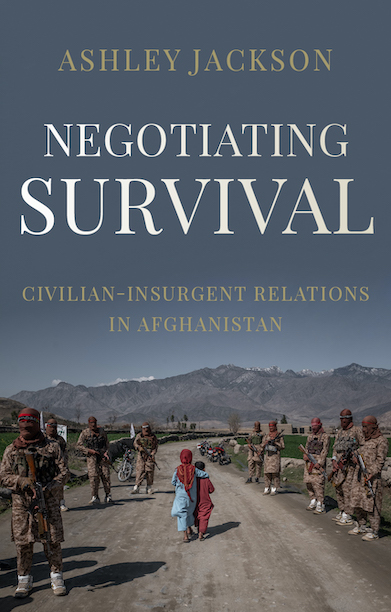

Excerpted from “Negotiating Survival: Civilian–Insurgent Relations in Afghanistan” by Ashley Jackson and published by C. Hurst & Co. (Publishers) Ltd. in the UK and Oxford University Press in USA © Ashley Jackson, 2021. Used by permission. All rights reserved. Footnotes have been removed to ease reading.
Negotiating for Survival Both civilians and insurgents have been forced to negotiate with each other in order to survive. The Taliban bargains with civilians because they need a nominal level of compliance from the population. At the very least, they must ensure that civilians will not oppose, obstruct or threaten the insurgency. As the Taliban exert influence over a given territory, they must ensure that civilians will follow their rules. While the Taliban can, and often does, use violence and coercion, this is not sufficient in itself. They typically combine that coercion with incentives like the provision of security or protection of goods, services and economic opportunities. Civilians have considerably less power to wield in these negotiations than insurgents. Indeed, some try to avoid the Taliban for as long as they can, or they fee for government-controlled areas. Few who remain in areas of Taliban influence, however, can keep themselves…
Related Posts


Donald Trump’s Master Economic Plan I Opinion by Yanis Varoufakis




